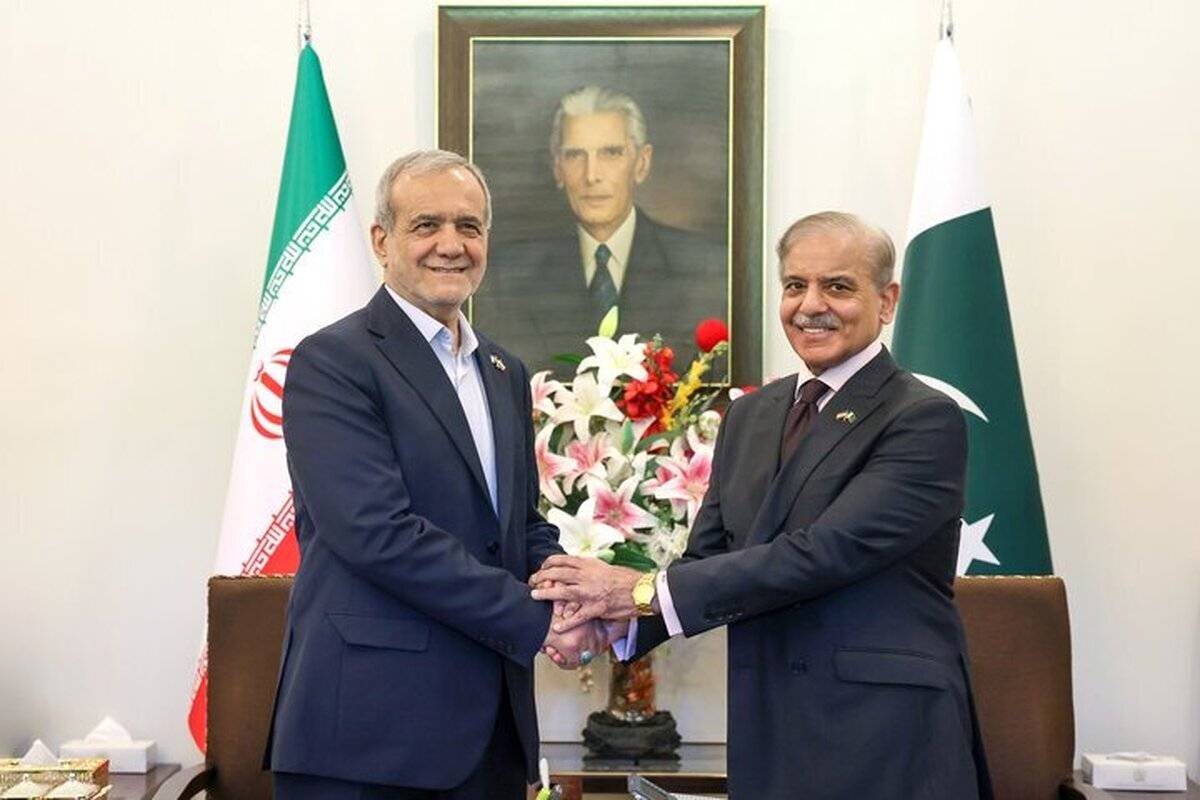Bridging borders, building brotherhood, shaping futures

ISlAMABAD, Pakistan — When neighbors shake hands, history watches. And this time, it applauded.
In a world teetering on the edge of uncertainty, where diplomacy often takes a backseat to drama, the recent visit of Iranian President Dr. Masoud Pezeshkian to Pakistan was not just a diplomatic event—it was a statement. A statement of intent, identity, and ideological closeness between two nations bound by more than just borders. It was, as I see it, a reaffirmation that despite shifting sands, there are still regions where principles outweigh pressure and brotherhood outlasts backdoor politics.
Having observed regional diplomacy up close and reported on its many twists and turns, I can say with certainty: this visit was historic—not in the ceremonial sense, but in its substance. The embrace between President Pezeshkian and Prime Minister Shehbaz Sharif echoed far beyond Islamabad; it resonated across a Muslim world desperate for unity, dignity, and direction. This wasn’t just political choreography—it was meaningful engagement built on decades of shared struggle and sincere aspirations.
Prime Minister Sharif’s categorical condemnation of Israel’s June aggression on Iran was not merely a political gesture. It was a bold reaffirmation of Pakistan’s moral compass—one that points firmly toward justice, sovereignty, and solidarity. “There was no reason for Israel to stoke war,” the PM said, voicing not only the sentiment of his cabinet but also that of 240 million Pakistanis who watched the events unfold with heavy hearts. The condolences extended to the martyrs—Iranian generals, scientists, and innocent civilians—were deeply heartfelt and diplomatically significant.
The Iranian side, too, displayed statesmanship of the highest order. President Pezeshkian’s poetic references to Allama Iqbal were not mere symbolism; they were a call to revive the very spirit of Muslim unity that Iqbal envisioned. As a student of Iqbal’s philosophy and someone who has spent years analyzing the fault lines of South Asia and the Middle East, I found those references both timely and timeless. “Advancing neighborhood diplomacy,” the president said, “is among our top foreign policy priorities.” This wasn’t a line for headlines; it was a deeply strategic declaration.
What followed wasn’t just talk. It was tangible. Twelve wide-ranging agreements and MoUs were signed, covering energy, technology, border management, trade, and infrastructure. The joint resolve to increase bilateral trade from $3 billion to $10 billion is not mere ambition—it’s backed by a pragmatic roadmap involving enhanced connectivity via land, sea, and air. The Pak-Iran Business Forum, attended by top investors, commerce officials, and policymakers, was a testament to this seriousness. For seasoned watchers of regional economies like myself, the tone of the forum spoke volumes—this wasn’t polite optimism; it was confident forward-marching.
This evolving synergy between Tehran and Islamabad is not a seasonal sentiment but a strategic shift—a testament to years of quiet diplomacy, cultural interdependence, and mutual resilience. Both nations have weathered storms—from sanctions to security threats—yet never let the flame of fraternity flicker. The Pak-Iran bond is rooted not merely in geography, but in ideology, history, and heart. It is a relationship that defies external dictates and thrives on sovereign will. With every handshake, every signed MoU, and every shared vision, Iran and Pakistan are scripting a new chapter—one where neighbors aren’t rivals but reliable partners. In an age where alliances are often transactional, this brotherhood stands as a symbol of principled partnership.
As someone who has closely followed regional military doctrines, nuclear non-proliferation narratives, and power realignments in South and West Asia, I view this partnership as a potential cornerstone for regional stability. Both countries have taken principled stances—be it on Iran’s right to peaceful nuclear technology under the UN charter, or their united stand against terrorism, which PM Sharif rightly called “a shared wound.” His statement that “an act of terror in Iran is an attack on Pakistan” is a profound reminder that regional security can only be achieved when borders are protected by trust, not just troops.
There was also a softer side to the visit—cultural affinity, mutual respect, and the emotional fabric that binds Lahore to Shiraz. President Pezeshkian’s warmth did not go unnoticed by the Pakistani media. Nor did the symbolism of holding a high-level meeting on the soil of a country that has always supported Iran’s sovereignty, dignity, and independent foreign policy.
In a time when much of the Muslim world is caught between external pressure and internal polarization, this visit was a breath of diplomatic fresh air—a demonstration that sovereign states can still shape their own narratives, forge their own alliances, and prioritize their own people.
And as someone who has traveled between capitals, sat in policy rooms, and reported from frontlines of diplomacy, I say this with conviction: The Pak-Iran relationship is no longer about potential; it is about progress. And this progress, if nurtured wisely, could serve as a model for others seeking strategic autonomy wrapped in fraternal unity.
When the dust settles on today’s turbulence, historians may well write: August 2025 was when Pakistan and Iran didn’t just exchange pleasantries—they planted the seeds of a future rooted in sovereignty, solidarity, and strength.
Syed Aoon Sherazi is a Pakistani journalist, foreign affairs analyst, and regular contributor to international media. He specializes in South Asia-Middle East relations, conflict diplomacy, and regional economic corridors.
The views expressed in this article are those of the author and do not necessarily reflect the official position of the Tehran Times.
